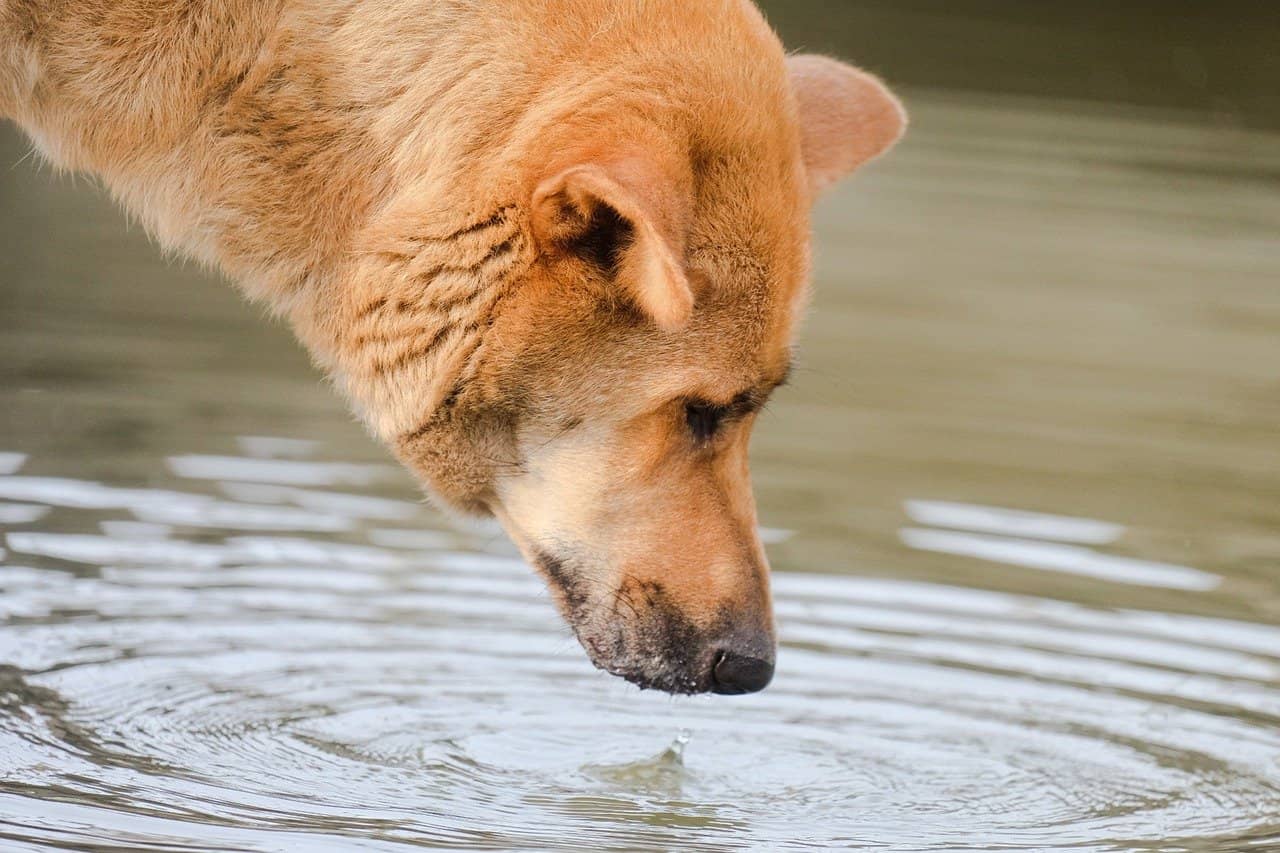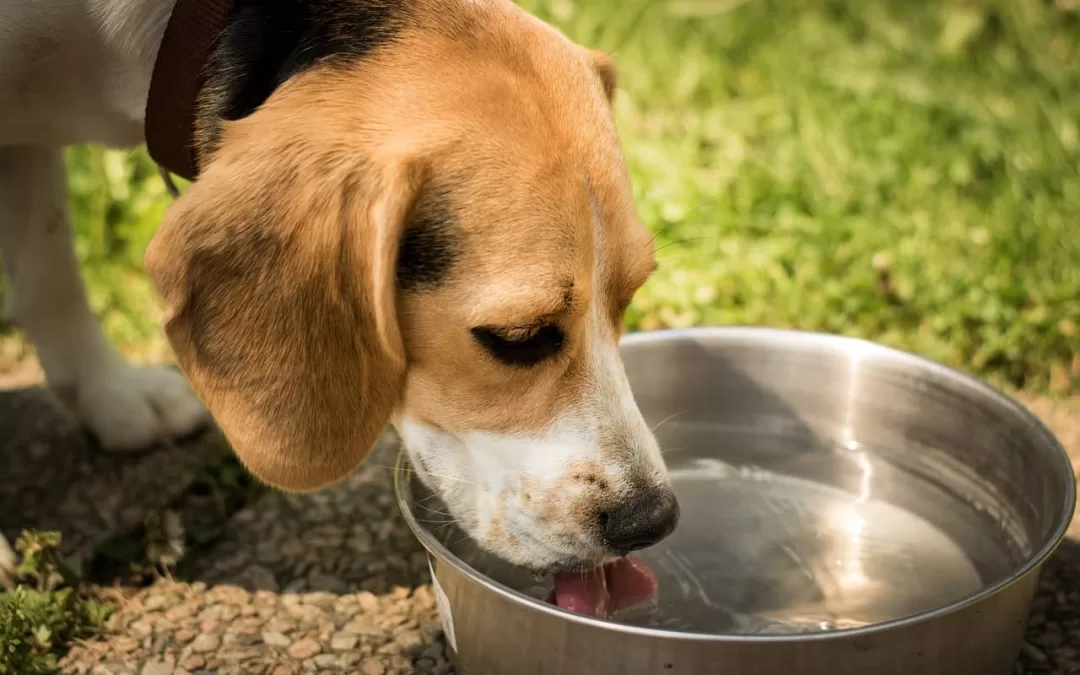Dogs and humans may be biologically different in many ways, but we both need water to survive. And, as a responsible pet owner, you likely want the best for your dog, and to be sure that the water they are drinking is going to be safe and healthy for them. However, when you find your dog drinking rainwater or lapping up from a muddy puddle, you might wonder whether it’s harmless or potentially harmful to their health. Here, we want to try and answer the age-old question: Is it okay for your dog to drink dirty water?
Risks Associated With Dirty Water
Depending on how dirty a source of water is, stagnant or unfiltered water can contain “forever chemicals” and a multitude of other contaminants that include PFAS, bacteria, parasites, and toxins which can prove to be harmful to your furry friend.
Bacteria / Parasites
Two of the most common bacteria found in stagnant or untreated water sources include E. coli and Salmonella. If consumed, both can cause gastrointestinal issues ranging from mild stomach upset to severe illness. Furthermore, parasites like Giardia and Cryptosporidium are also prevalent in stagnant water and can lead to diarrhea and other digestive problems for dogs that regularly drink dirty water.
Toxins
Stagnant water can also produce the growth of algae, some of which produce harmful toxins known as cyanobacteria or blue-green algae. Ingesting water contaminated with these toxins can result in symptoms ranging from vomiting and diarrhea to seizures and even death in severe cases.
What Makes Dirty Water Less Dangerous To Dogs?

Although both humans and dogs can get sick from drinking dirty water, canines are far less likely to experience negative consequences. Simply put, this is because dogs have different biological processes to allow them to drink dirty water and combat the contaminants that would typically make a person sick. While the risks associated with dogs drinking dirty water are real, several factors influence the potential harm to your pet:
Immune System Strength: While a dog naturally has a far more effective digestive system than a human, the overall strength of their immune system greatly influences their ability to consume dirty water. For instance, if they have a strong immune system a dog drinking rainwater may be better equipped to handle exposure to certain contaminants than a dog with a weakened immune system due to age, illness, or stress.
Frequency Of Exposure: Another factor to consider is the amount of dirty water that a dog is drinking. If a dog laps from a muddy puddle during a walk occasionally, it’s unlikely they will experience any side effects. However, a dog whose only option is to repeatedly drink from contaminated water sources is far more likely to eventually fall ill. Dog’s digestive systems may be impressive, but they are not impervious to harm.
Types And Levels Of Contaminants: The specific contaminants present in dirty water and their concentration levels also play a large role in determining the potential health effects on your dog. There is a significant difference between a dog taking a quick drink from a pond or a river compared to a dog drinking dirty water next to a dumpster or sewage.
Overall Health: Of course, a dog’s overall health is an important factor in determining whether their body is capable of fighting off illness from drinking dirty water. Older dogs or those with pre-existing health conditions may be more susceptible to the adverse effects of a dog drinking rainwater or other dirty water sources. Therefore, it is essential to know the status of your dog’s health at all times to be aware of what they should and shouldn’t consume.
Preventative Measures
While you may not be able to prevent your dog from occasionally drinking dirty water, there are steps you can take to minimize the risks:
Provide Clean Water: Ensure your dog always has access to fresh, filtered water, especially during outdoor activities. Carry a portable water bowl and a supply of fresh water when taking your dog for walks or hikes.
Supervise Outdoor Activities: Keep a close eye on your dog during outdoor excursions and discourage your dog from drinking rainwater or from questionable water sources.
Avoid High-Risk Areas: Steer clear of known contaminated water sources such as ponds with visible algae blooms or bodies of water near industrial sites or agricultural areas where chemical runoff may be present.
So, is it recommended for your dog to drink dirty water? No. But is it okay if they do now and then? Most likely. Dogs are resilient animals that deserve the best care and water that we can provide. So, to avoid any potential water contamination issues, be sure to always have clean water available with the help of a Hydrovos reverse osmosis water system. Shop online today or contact us to learn more about how to get the best water into your home that even your dog can enjoy!

